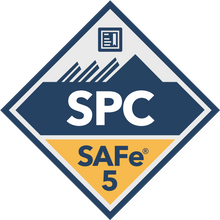Five Impactful Ways Leaders Can Support the Agile Transformation
by Patrick Delany
Executives and senior leaders want to support their agile transformation. After all, they are committing a lot of money, time, and credibility to the initiative. However, leaders are often unaware of how to participate in the process and show (not just speak) their support. Sometimes leaders decide or are advised to attend team ceremonies and product events. This is a great way to show support but attending numerous meetings is time-consuming and provides little benefit to the leaders. In short order, the leaders retreat to their usual busy schedules and become detached from the overall transformation.
Fortunately for you, if you are an executive or leader in your organization, there are a few ways that you can participate in the agile transformation. These methods will not create excessive strain on your already overbooked schedule. Here are five impactful ways you can participate in the agile transformation and demonstrate leadership:
- Attend Demonstrations: Demonstrations are where the rubber meets the road in agile. They provide a quick and firsthand view of how teams and Agile Release Trains (ARTs) are performing (or not performing). By attending and engaging in demonstrations you are saying to the teams, “your work matters.” You, as the leader, are also showing the business customers and stakeholders that you are accountable and approachable.
- Sponsor an Innovation Day or Hackathon: There is no better way for leaders to communicate that “we are breaking the order take paradigm” than by hosting a day of incubating and promoting innovation. Use that day to showcase that your organization is becoming a thinking, learning, and innovating technology shop. As a leader, volunteer to be the judge. You will receive fresh new insight into the talents and interests of your technologists. Don’t be surprised by the number of great new ideas, bug fixes, and enhancements you discover–expect them.
- Review Retrospective Statistics: As a coach, I often get asked for measurements on team velocity or output. My advice is to ask your teams to report on their Retrospective results. Simply ask each team how they are progressing on implementing their self-improvement activities. This sends a clear message that you are expecting your teams and your organization to become a learning and adaptive organization. I strongly discourage comparing teams based on story point completion which is a huge anti-pattern and only leads to story point inflation and loss of trust.
- Kick Off the PI Planning Event: This one should be a no-brainer but, as a coach, I am still amazed at how many senior leaders back out of speaking at the last minute. Nothing says “you are not important” like being blown off at the last minute. Commit to being a speaker and stick to it. Be sure to speak in broad strokes. Connect the company’s goals and strategies to the work that the teams are being asked to plan and ultimately deliver. As Woody Allen once said, “Eighty percent of success is just showing up.”
- Create Your Own Kanban Board: If you expect your organization to learn and adapt to a new method of working, then you must too. You can do this by simply setting up a Kanban board for the leadership team. Encourage your teams to put items on the board for you to work on. These items should be for organization impediments and inefficiencies that your teams need your help resolving. Finally, be transparent on the progress or lack of progress on these items with your teams. This builds credibility and improves organizational transparency.
By partaking in these five activities, you as a leader will be able to show the right amount of support for the transformation without shirking your existing leadership and executive obligations.
Patrick Delany is a leader in lean-agile enterprise transformational and a Scaled Agile Coach/Trainer with over 20 years of information technology leadership and consulting experience. Patrick has transformed technology organizations, programs, and teams across multiple industries and technology disciplines including management services (operations, program, portfolio), applications development, and infrastructure.
Patrick Delany, MBA, SPC5, PMP, CSM, ITIL v3
Senior Lean-Agile Transformation Coach Consultant

